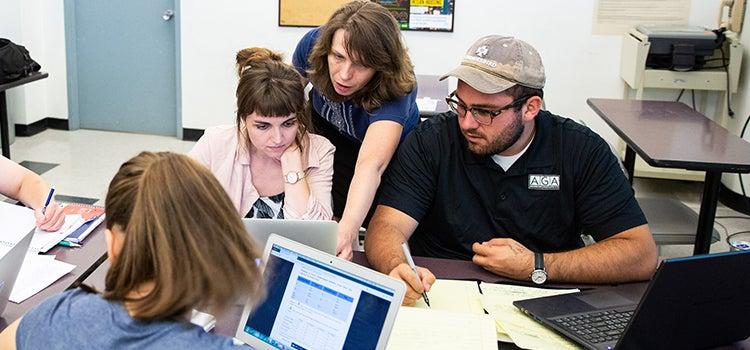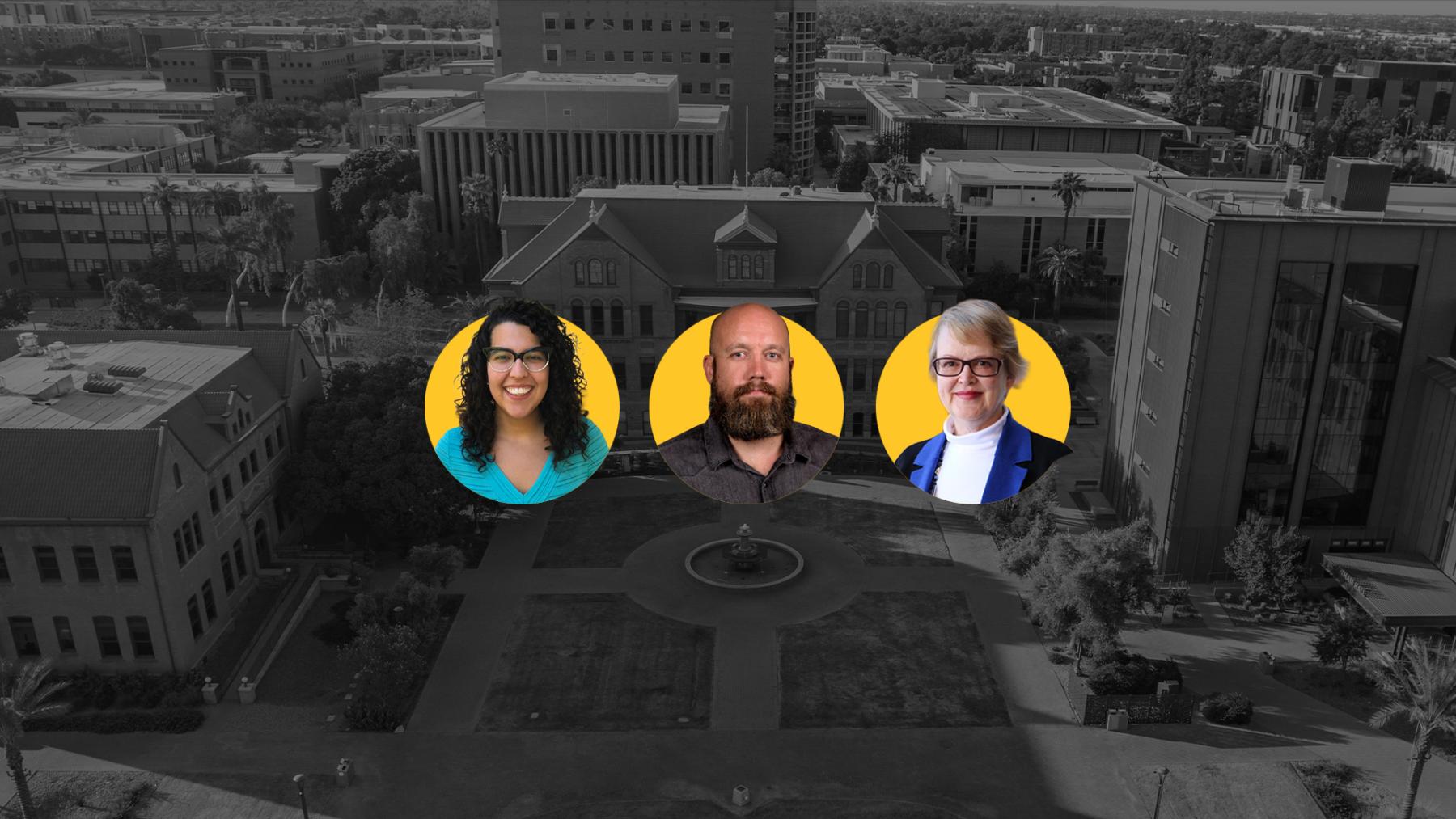
Teaching assistants’ roles, responsibilities and expectations
The start of a semester marks the beginning of a new journey for thousands of students and for many graduate students, they are embracing a new role as a teaching assistant (TA). A TA position provides graduate students with valuable professional development opportunities unique to academia while also supporting the university’s teaching, research and service missions. While department- and subject-specific training will take place under the guidance of their faculty mentors, new TAs will learn about general responsibilities and expectations of them during TA Orientation, one component of the Teaching Assistant Development (TAD) program.
TA Orientation is held twice a year, spring and fall, the week before classes start. This year, approximately 500 students were welcomed by Dr. Alfredo J Artiles, dean of the Graduate College, who delivered an inspirational message that highlighted the three core areas of professional development intrinsic to the TA experience: development of transferable skills, building of social capital and the fostering of student success through a culture of care.
This message resonated with attendees. At the conclusion of the program, one of the new TAs said, “For me, Dr. Artiles' assertion that good teaching is built upon a foundation of care threaded together through each presentation, and was one of the most essential take-aways of the orientation program.”
Following Dr. Artiles’ welcome, a panel of faculty and GPSA Teaching Excellence Award recipients highlighted further tips and traits for being an effective, yet caring TA. “Be present, engaging and willing to listen to your students,” noted one faculty member, with others agreeing, “and don’t be afraid to change midstream, if needed.” Other panelists noted that boundary- and expectation-setting are critical to success in the classroom for both TA and student.
The half-day program also introduced new TAs to campus resources not only important to themselves as graduate students, but in their capacity as caregivers for their own undergraduate charges. Among resource units presenting were ASU Wellness, the ASU Police Department, ASU Counseling Services, the Office and Equity and Inclusion and Dean of Students Office. New TAs were encouraged to promote student wellness through ASU Wellness’ Personal Wellness Profile Health Assessment, support a safe campus environment by downloading and using the LiveSafe app and foster a community of care by understanding Title IX, a TA’s duty to mandatory reporting and knowing the resources to support students in addressing substance or physical abuse.
Supplementing the policies, procedures and best practices covered at TA Orientation, the Graduate College has an online resource, The Diary of a New TA, a blog designed by an ASU graduate TA to help new graduate students utilize a forum to explore practical ideas and techniques to shape their own teaching style, managing a teaching assignment, surviving the first day and handling problems in the classroom.
Take a moment to read and engage in TA Orientation, the Diary of a New TA and other Graduate College Professional Development programs.
More stories from the Graduate Insider

Finding your flow: Managing the graduate writing process
Graduate writing can feel like a marathon—long, demanding, and full of unexpected detours. But as Tristan Rebe, Program Manager for the Graduate Writing Center, reminded students in the Grad15: Managing the Writing Process webinar, writing is not about perfection—it’s about progress. “The best dissertation is a done dissertation,” Rebe said, quoting Robert Frost: the best way out is through.

Promoting resilience and well-being in Ghana — and across the globe

From practice to presentation: How to deliver a winning faculty job talk
Giving a job talk can feel like the most high-stakes presentation of your academic job search. It’s not just a research seminar—it’s your opportunity to demonstrate vision, communication skills, and fit within a department. In a recent Lunch and Learn, faculty members Associate Professor in School of International Letters and Cultures, Anita Huizar-Hernandez, Professor in School of Life Sciences Jeffrey Jensen, and Professor in Department of Physics Patricia Rankin shared concrete strategies to help graduate students and postdocs succeed as future faculty candidates.